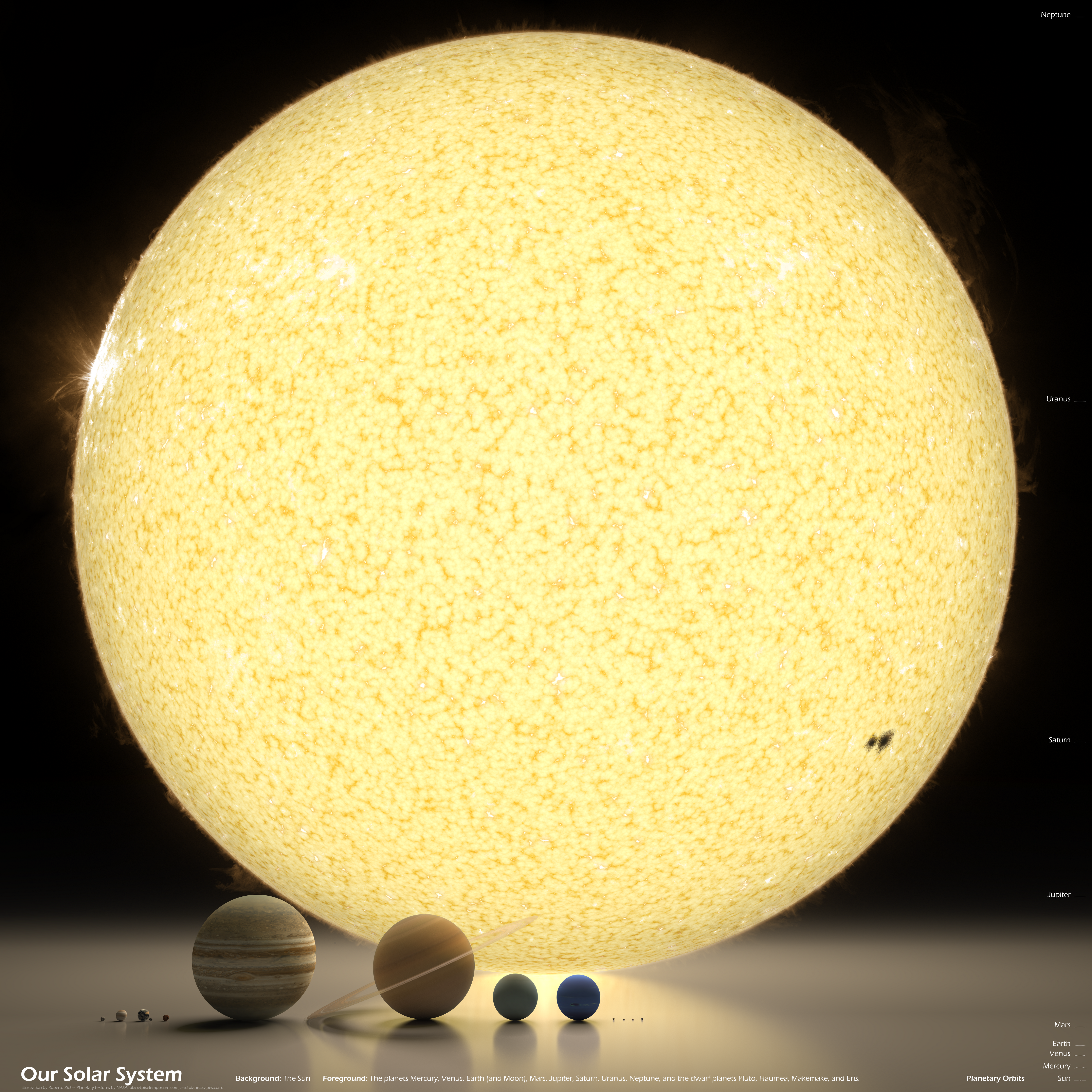Ingresa o regístrate acá para seguir este blog.
Lee aquí la entrada en español.
We had the chance to exchange a few questions with Juliette Becker, researcher and PhD student at the University of Michigan, Department of Astronomy. Juliette is a graduate research fellow (NSF) and has authored several papers on the topic of stars and exoplanets.
Recently, Juliette and her team published an article detailing the findings on a new astronomical object named 2015 BP519 (it is open for anyone to download, by the way). In the article, they discuss how this object’s behavior could be correlated with the presence of a ninth planet in our Solar System…

Artist’s representation of Planet Nine. Not yet, but… coming soon? Credit: Caltech/R. Hurt (IPAC)
Hi Juliette, and welcome to el aleph!
Could you please tell us what did you discover, and how did you do it?
[Juliette Becker] We found a new Trans-Neptunian Object (TNO) in the solar system, which is a particularly interesting object since its orbit is tilted relative to the eight solar system planets. We found it using Dark Energy Survey (DES) data: DES is a long-term survey which has been taking images of the sky for a bit over 5 years. We were able to find pictures of this object in the images DES took, and piece those pictures together to determine the orbit of this object, BP519.
ea. When you analyzed the DES data, were you looking specifically for this TNO? How did you know where to look?
We weren’t looking for any particular types of TNOs, we were just trying to find whatever we could. As for where to look – we are looking in ALL of the data taken by Dark Energy Survey!
If Planet Nine is in the solar system, then objects like this one will be created naturally, so its existence is circumstantial evidence for Planet Nine.
ea. When we first read about the ‘Planet Nine’ hypothesis, we were wondering about the opinion/consensus of the academic community on this topic. Was there any prior, convincing evidence pointing to the existence of a ninth planet?
The main modern piece of evidence is the clustering in direction of the orbits of the extreme TNOs (see the interactive plot from our paper – you’ll see the orbits seem to point all the same way). In the past, other groups have proposed other “extra planets” to explain other properties of the solar system, but this iteration of Planet Nine seems to be holding up to scrutiny so far. At the same time, a ninth planet in the solar system is a pretty big claim, so many scientists are skeptical and want more evidence to be sure.
ea. I take it that the ‘ninth planet’ claims from these other research groups were not very successful over time…
They were not! Many iterations of the ninth planet have been ruled out over time through observations.
ea. What are the implications of your findings on the existence of a ninth planet?
The extreme orbit of our object is hard to create given how we think the solar system formed and what we think is in it. If Planet Nine is in the solar system, then objects like this one will be created naturally, so its existence is circumstantial evidence for Planet Nine.

The Solar System… and ‘friends’. The scale of the objects is accurate; the relative distances are not. Will a new member come to the family? Credit: R. Ziche
ea. Of course, confirming the existence of a ninth planet in the Solar System would be a major discovery; we can only suppose that researchers around the world are already searching for it. What kind of ‘proof’ is needed to identify a new planet with certainty? Do you think a discovery could be happening any soon?
To prove it, we need to see sun light reflected off the planet, and observe it multiple times so that we can figure out its orbit. I think that there is a good chance that it will be found pretty soon (maybe within a few years).
ea. Where is your current/future research pointing towards now? Do you think you will discover more objects in the Solar system?
Our group is currently searching through all the DES data to find more objects – we have a really cool one coming out soon (the paper was just approved by everyone in DES). Our goal is to find as many new objects in the outer solar system as possible – both exciting ones like BP519 and the new object that’s coming out soon, and also boring ones!
The main modern piece of evidence is the clustering in direction of the orbits of the extreme TNOs (…) The orbits seem to point all the same way.
Plus… three flash questions:
Is there any current/future development or mission keeping you excited these days?
The TESS exoplanet mission (Transiting Exoplanet Survey Satellite), which launched earlier this year, is particularly exciting! It will find exoplanets around the brightest stars in the sky, which we will be able to study further with telescopes on the ground.
Does the evidence tell us anything about how Planet 9 may be?
We think based on how it would interact with the TNOs that it is probably between 6 and 10 times the mass of the Earth. It might be a gaseous planet!
Hypothetically… Have you given any thought about how the planet would be named? This could be a really important decision for posterity. In the age of the Internet, we may want to avoid a ‘Planet McPlanetface’…
I’ll have to defer to the IAU on this one! They have stringent systems for naming planets and other bodies. I doubt they would ever allow Planet McPlanetface (although that WOULD be pretty funny…)

PS1. Wow. So many things to report… Recently, the first image was obtained of a planet ‘being born’…! And more space-related news.
PS2. Some interesting reading on IBM’s AI debate, which takes us to a point that is becoming more common: “Machine learning does not distinguish between correlations that are causally meaningful and ones that are incidental.” Food for thought?
PS3. Also… Fun with flags! The flags of the world ranked by ‘complexity’ (somehow arbitrary, of course. But they do have a nice criterion – ranking the sizes of the vector files representing the flags).
PS4. Not necessarily ‘news-related’, but… Some eerily beautiful pictures of Bogotá.
PS5. And to close, bees understand the concept of zero.
Links to previous entries? Sure! SPACEPLAN, The Martian, and An Odyssey towards Pluto…
